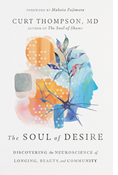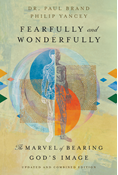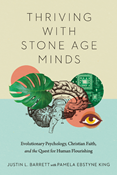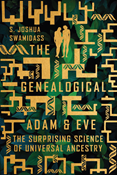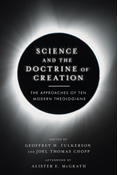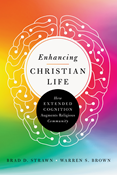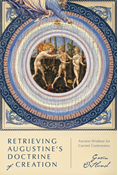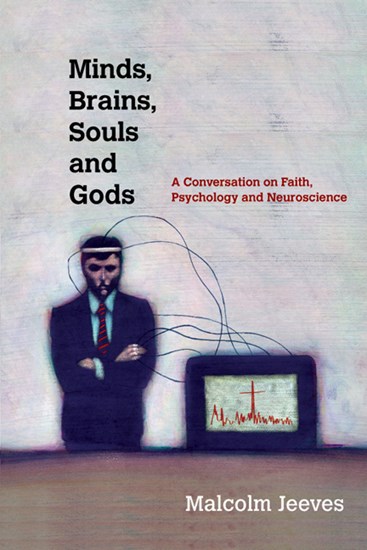
|
Minds, Brains, Souls and Gods
paperback
|
- Length: 219 pages
- Published: August 05, 2013
- Imprint: IVP Academic
- Item Code: 3998
- ISBN: 9780830839988
-
Other Retailers:
Amazon*
*affiliate partner
The field of psychology, and especially neuropsychology, can be daunting for Christian students trying to find their way. In the face of surprising new research and radical new theories, it is tempting to limit the integration of Christianity and psychology to relatively "safe" topics that one can easily differentiate from matters of faith. In Minds, Brains, Souls and Gods, the highly esteemed professor of psychology, Malcolm Jeeves, insists on addressing the difficult questions head-on.
- Do I have a soul?
- How free am I?
- What makes me uniquely human?
- Does my brain have a "God spot"?
In this hypothetical correspondence with a student, Jeeves argues that we must avoid false choices in the relation between Scripture and science. Christians need not choose between a "God of the gaps" that competes with science, a "neurotheology" that bases our understanding of God on the latest scientific theory, or a scientific reductionism that claims to have explained God away as a mere function of the brain. Students encountering the brave new world of neuroscience need not view such research as a threat to the faith. With the wisdom of a seasoned scholar, Jeeves guides us down the road less-traveled—the way of integration.
"This remarkably accessible volume brings a lifetime of scientific engagement at the highest level to bear on the kinds of questions posed by contemporary science in general, and psychology, neuroscience and evolutionary biology in particular. Although it focuses specifically on those questions raised at the cutting edge of contemporary psychology, its range extends well beyond the bounds of that discipline. As Jeeves comments in the preface, the questions it addresses are 'real questions raised by real students who want to be intellectually honest, to have . . . examined faith.' What results from this honest and informed engagement is the recognition that, far from being in tension with the deliverances of science, Christian faith opens and liberates the mind to grasp the truth at ever-deeper levels. Jeeves avoids the confused assumption that Christians have to pinpoint an essential distinguishing factor between the human being and other creatures, since 'as Christians we believe that . . . what makes us different is not something about us but who we are called to be.' The perception underpinning the book is that God addresses and calls precisely those same creatures upon which evolutionary biology, neuroscience and the rest of the scientific disciplines stand to shed so much light. While this volume is remarkably wide-ranging in the questions it asks, it also engages in profound and deep-thinking (yet always lucid) analysis. For those cynics who would dismiss Christianity with uninformed or superficial references to the scientific state of play, this volume is bad news. For those Christians, of any age, who fear lest their faith may require them to put intellectual rigor or scientific integrity to one side, it is exceedingly good news. This is a superb book which I vehemently hope--and, indeed, fully expect--will become a bestseller. Every Christian student interested in the fundamental questions of human nature and scientific inquiry must buy it, read it and pass it on to their friends!"
"No one is better qualified to lead a conversation on Christian faith, psychology and neuroscience than Malcolm Jeeves. As lecturer, author and practitioner, he has been central to the discussion for decades, and he brings to this book uncommon wisdom, practical insight and a rare combination of expertise and humility. For anyone interested in what recent innovations in brain science might contribute to our understanding of what it means to be human, this is a must-read."
"This is a bold, timely, remarkable and impressive book. No one should doubt its colossal and up-to-date learning in psychology, neuroscience, evolutionary theory and cognate fields. What makes it especially remarkable is the combination of all this with a sober, realistic and accurate understanding of many biblical passages and theological doctrines. The book engages with many issues that impinge on Christian faith: the existence of the 'soul,' determinism and freedom, altruism, divine guidance, reductionism, evolutionary theory, genetics and a host of such issues. The style, on top of all this, is extremely readable, and is modeled on the dialogical correspondence of C. S. Lewis's Screwtape Letters and Letters to Malcolm. However, these are genuine questions, not hypothetical ones, based largely on real questions raised by Christian psychology students at Hope College (Holland, Michigan) and elsewhere. The upshot is that in the search for truth, Prof. Jeeves argues, there is no conflict between psychology or neuroscience and Christian belief or theology. These are not competitors but complementary ways of approaching truth. This book avoids any bland generalization and patiently explores each source of concern as raised by students. It conveys the careful Christian thought of a dedicated academic career of well over half a century. It has extensive bibliographies. I have no hesitation in warmly and unreservedly commending this marvelous book."
"What is the relationship between the brain and the mind? What about the soul: Does it exist? Is it something other than just the brain or brain activity? Do we have a God gene? If you want to explore possible answers to these and very many other related questions, you will want to read Minds, Brains, Souls and Gods. It offers much to learn and much to ponder. Malcolm Jeeves is a distinguished neurobiologist, at home also with the Bible and Christian and other religious traditions. Jeeves's conversational style is highly didactic, as well as entertaining. A pleasure to read."
"In this capstone to his distinguished career, Malcolm Jeeves--a pioneering cognitive neuroscientist and our wisest thinker about the interplay of psychological science and faith--helps a student wrestle with big questions. The student is fictional, but the issues are real, and these insightful 'letters from Malcolm' speak to the heart of Christian students' engagement with today's science."
CONTENTS
Preface
1. What Is Psychology, and How Should We Approach It?
2. What Is the Relationship Between the Mind and Brain?
3. How Free Am I? Free Will and Determinism
4. Determinism, Genetics and the "God Gene"
5. Have Benjamin Libet?s Experiments Exploded the Free-Will Myth?
6. But Is It All in the Brain? The Emergence of Social Neuroscience
7. But What About the Soul?
8. If I Don?t Have an Immortal Soul, What Makes Me Human?
9. Don?t Parapsychology and Near-Death Experiences Prove the Existence of the Soul?
10. Are Humans Different? What About Morality in Animals?
11. What Is the Difference Between Altruism, Altruistic Love and Agape?
12. Does Language Uniquely Define Us As Humans?
13. Does My Brain Have a "God Spot"?
14. Does God Guide and Direct Us?
15. Does Neuropsychology Have Anything to Offer Psychotherapy and Counseling?
16. Are Religious Beliefs the Twenty-First-Century Opium of the People? What About Placebo Effects?
17. What About Spirituality? Is It in the Soul or the Brain?
18. Can Science "Explain Away" Religion?
19. Where Next? Taking Stock
Appendix
Further Reading
Notes
Name Index
Subject Index




